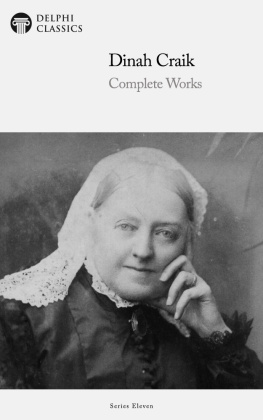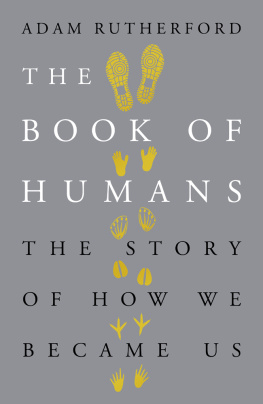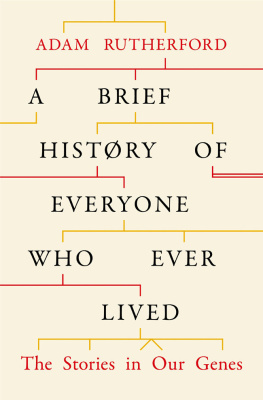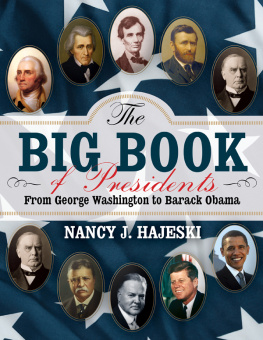INTRODUCTION.
Eighty years ago, when the story told in these pages was first published, "forecastle yarns" were more thrilling than they are now. In these days we look for information in regard to a new land's capabilities for pastoral, agricultural, and commercial pursuits; in those days it was customary, with a large portion of the British public, at any rate, to expect sailors to tell stories
Of the cannibals that each other eat,
The Anthropophagi, and men whose heads
Do grow beneath their shoulders,
and to relate other particulars likely to arrest the attention and excite the imagination. Men then sailed to unknown lands, peopled by unknown barbarians, and their adventures in strange and mysterious countries were clothed in a romance which has been almost completely dispelled by the telegraph, the newspaper press, cheap books, and rapid transit, and by the utilitarian ideas which have swept over the world.
It was largely to meet the public taste for something wonderful and striking that John Rutherford's story of adventures in New Zealand saw the light of publicity. In fairness to the original editor and the publisher, however, it should be stated that the story was given also as a means of supplying interesting information in regard to a country and a race of which very little was then known. It was embodied in a book of 400 pages, entitled "The New Zealanders," published in 1830, for the Society for the Diffusion of Useful Knowledge, by the famous publisher, Charles Knight.
He was a versatile, talented, and ambitious man; but all his ambitions ran in the direction of the public good. From the time of his early manhood, he wished to become a public instructor. At first he tried to achieve his end by means of journalism, which he entered in 1812, by reporting Parliamentary debates for "The Globe" and "The British Press," two London journals. Later on he started a publishing business in London. Dealing only with instructive subjects, he established "Knight's Quarterly Magazine," and other periodicals, to which he was one of the prominent contributors.
He was not a business man, and in 1828 he was overwhelmed by financial difficulties. In the meantime he had become acquainted with the brilliant but erratic Lord Brougham, who had completed arrangements for putting into operation one of his great enterprises for educating the masses. This was the establishment of the Society for the Diffusion of Useful Knowledge. It began a series of publications under the title of "The Library of Entertaining Knowledge," which Knight published. The first volume, written by Knight himself, was "The Menageries"; the second was "The New Zealanders." Other publications were issued by the society until it was dissolved in 1846. Knight continued to send works out of the press nearly to the end of his useful life, in March, 1873. Some of these were written by himself, some by friends, and some were translations. His "Penny Magazine," at the end of its first year, had a sale of 200,000 copies. Amongst his other publications are Lane's "Arabian Nights," "The Pictorial Bible," "The Pictorial History of England," andthe object of his highest ambition"The Pictorial Shakespeare." In "Passages of a Working Life," he wrote his own biography. In spite of his strenuous life he died a poor man. He was an enthusiast, but his impetuous nature induced him to attempt to carry out his schemes before they had matured. He had a quick temper and an eloquent tongue. The esteem in which he was held by his friends is shown by the admirable jest with which Douglas Jerrold took leave of him one evening at a social gathering. "Good Knight," Jerrold said.
The "New Zealanders" was published anonymously, and for many years the authorship was attributed to Lord Brougham. There is no doubt now, however, that the author was George Lillie Craik, a scholar and a man of letters. He was born at Kennoway, Fife, in 1798. He studied at St. Andrew's, and went through a divinity course, but never applied to be licensed as a preacher. Like Knight, he was attracted by journalism, which he regarded as a means of instructing the public. When he was only twenty years of age he was editor of "The Star," a local newspaper. In London he adopted authorship as a profession. In 1849, he was appointed Professor of English Literature and History at the Queen's College, Belfast, and later on, although he still resided at Belfast, he became examiner for the Indian Civil Service. All his literary work is distinguished by careful research. Perhaps his best effort is represented by "The Pursuit of Knowledge Under Difficulties," published in the same year as "The New Zealanders." With a colleague he edited "The Pictorial History of England," in four volumes. Amongst his other works are "A Romance of the Peerage," "Spencer and his Poetry," "A History of Commerce," "The English of Shakespeare," and "Bacon, his Writings and Philosophy." He had a flowing and cultured style, and he embellished his work with many references to the classics. He was one of the best read men of his time. His extensive reading and the simplicity of his style made him a very welcome contributor to the "Penny Magazine," the "Penny Cyclopdia," and other popular publications. He had a paralytic stroke while lecturing in Belfast in February, 1866, and he died in June of the same year. It is said of him that he was popular with students and welcome in society.
It is not known if Craik met Rutherford. He probably did not. He may have had "The New Zealanders" partly written when the manuscript describing Rutherford's adventures was placed in his hands. In that case, he wove it into his book, using it as a means of illustrating his remarks on the Maoris' customs. His work bears the stamp of honesty and industrious care. He collected all the information dealing with New Zealand available at the time, and he produced a fairly large book, which, for many years after it was published, must have been a valuable contribution to the public's store of "entertaining knowledge."
Rutherford, as his narrative shows, was ten years amongst the Maoris. He was an ignorant sailor. He could not write, and the account of his adventures, it is explained, was dictated to a friend while he was on the voyage back to England. Craik says that if allowance is made for some grammatical solecisms, the story, as it appeared in the manuscript, was told with great clearness, and sometimes with considerable spirit. Knight evidently knew him, as it is stated in "The New Zealanders" that "the publisher of this volume had many conversations with him when he was exhibited in London." It is probable, too, that Brougham knew him. Brougham, indeed, may have "discovered" him and introduced him to Knight. Rutherford was just the kind of man in whose company Brougham delighted to spend hours. He would listen to the recital of the thrilling adventures with the Maoris with breathless interest. A story told of the madcap days of Brougham's youth gives some idea of the welcome he would extend to Rutherford. One evening, after Brougham and some other gay spirits had supped together in London, they saw a mob of idle scoundrels beating an unfortunate woman with brutal ferocity. The young fellows went to her rescue. Their interference increased the tumult, and all the watchmen in the neighbourhood were soon about their ears. In return for their chivalry they were lodged in the watch-house. Amongst their fellow-prisoners there was an old sailor, who sat cowering over the embers of the fire. He had been in the American War. Brougham picked up an acquaintance with him, and all night long the young man held the old one in conversation, ascertaining the strength of the forces in the engagements, the scenes of the battles, the nature of the manoeuvres, the advances and reverses, and so on, until his avariciousness for knowledge was satisfied.











